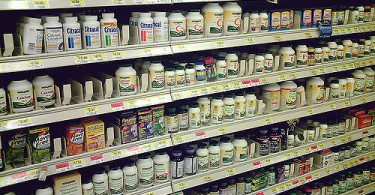Today, there are about 80,000 dietary supplement products on the market, up from 4,000 25 years...
Supplements
Amarin makes unsupported claims about its heart disease medicine
As we all know, some pharmaceutical companies will go very far to sell their products. Shefali...
Do not take supplements on blind faith
As a primary care doctor, I come across several interesting situations, challenges and experiences...
Are fish oil supplements just another red herring?
There appears to be precious little evidence of the benefits to individuals of fish oil...
Should you be taking vitamins?
Liz Szabo reports for the New York Times that older Americans are popping supplements like candy...
No evidence oral beauty supplements improve skin
A meta-study of research on oral beauty supplements by nutrition scientists at the British...
Eating green leafy vegetables could help your memory
A new cognitive study in Neurology suggests that people who eat green leafy vegetables on a daily...
Vitamin E supplements: Should you take them?
One question I bet you have because it’s one my patients ask me over and over again is which...
Taking supplements? You’re at risk for liver damage
There’s plenty of data to suggest that taking vitamin or herbal supplements offers little...
Millions of Americans spend billions on alternative treatments...
There’s endless talk about the $2.8 trillion dollars Americans spend each year on health...










